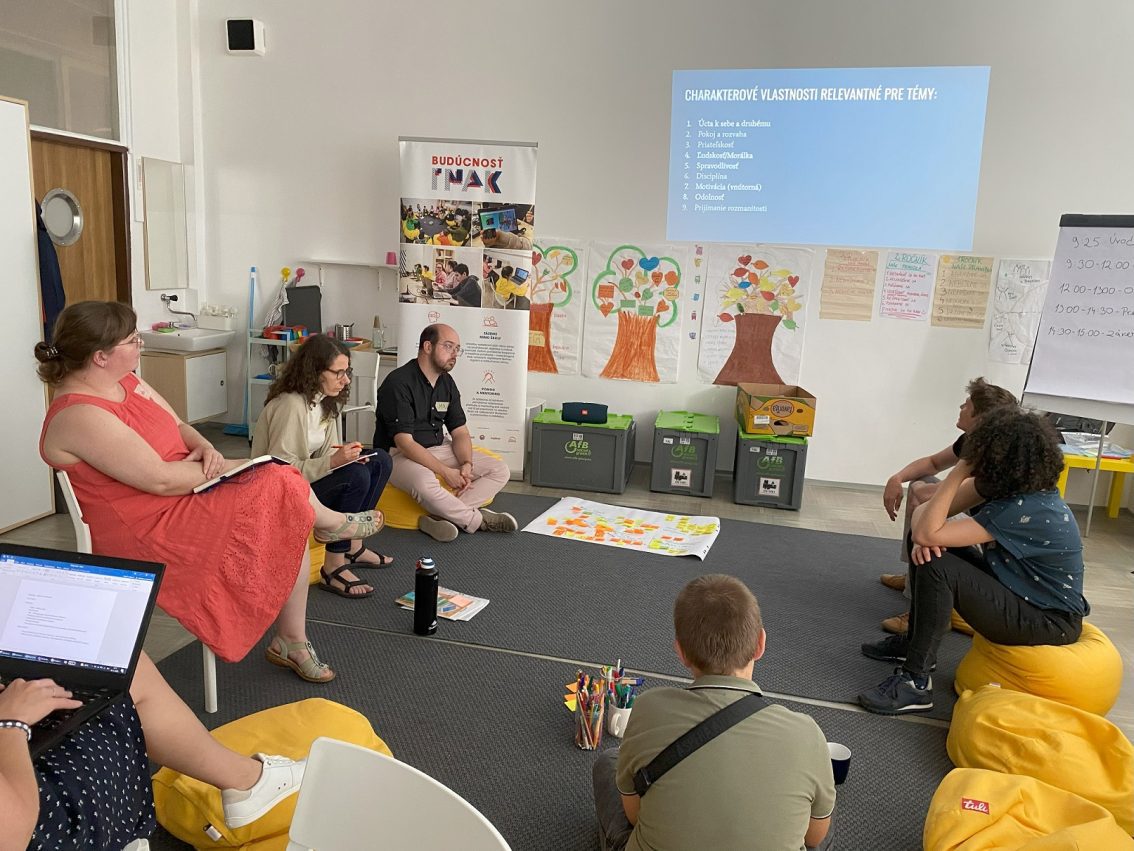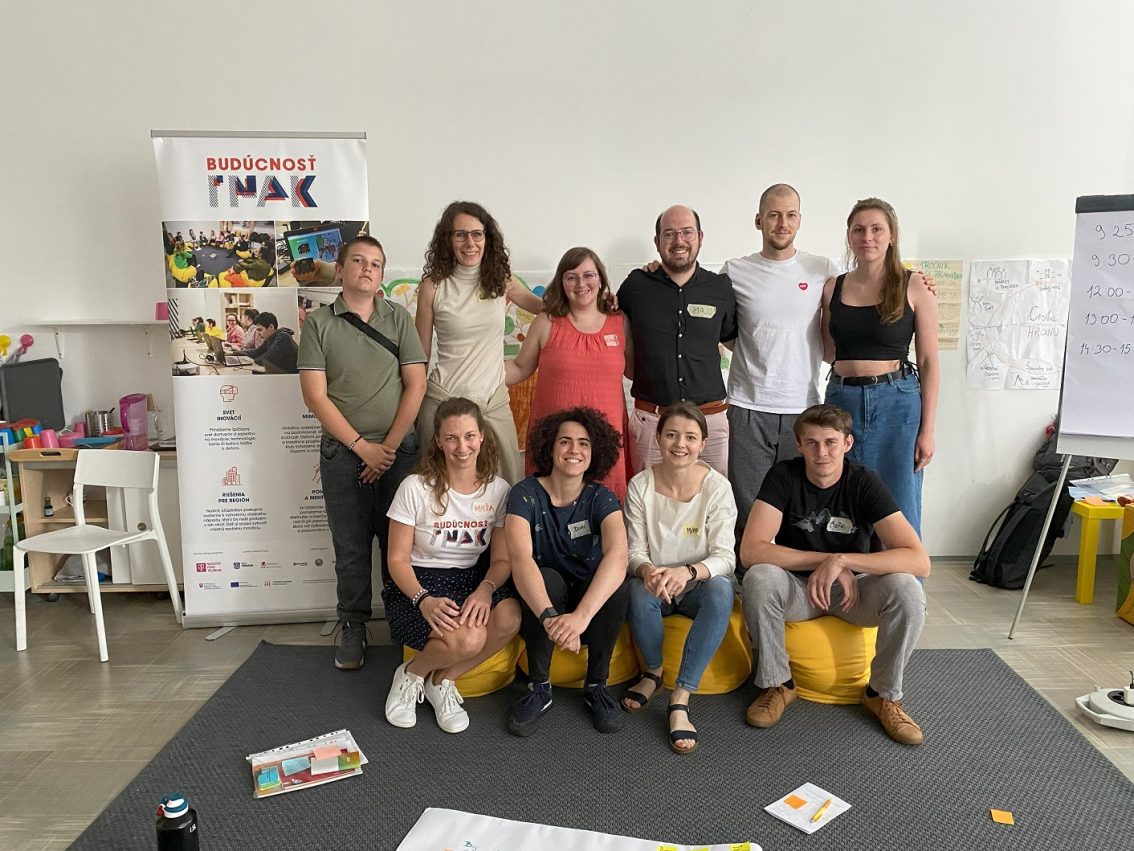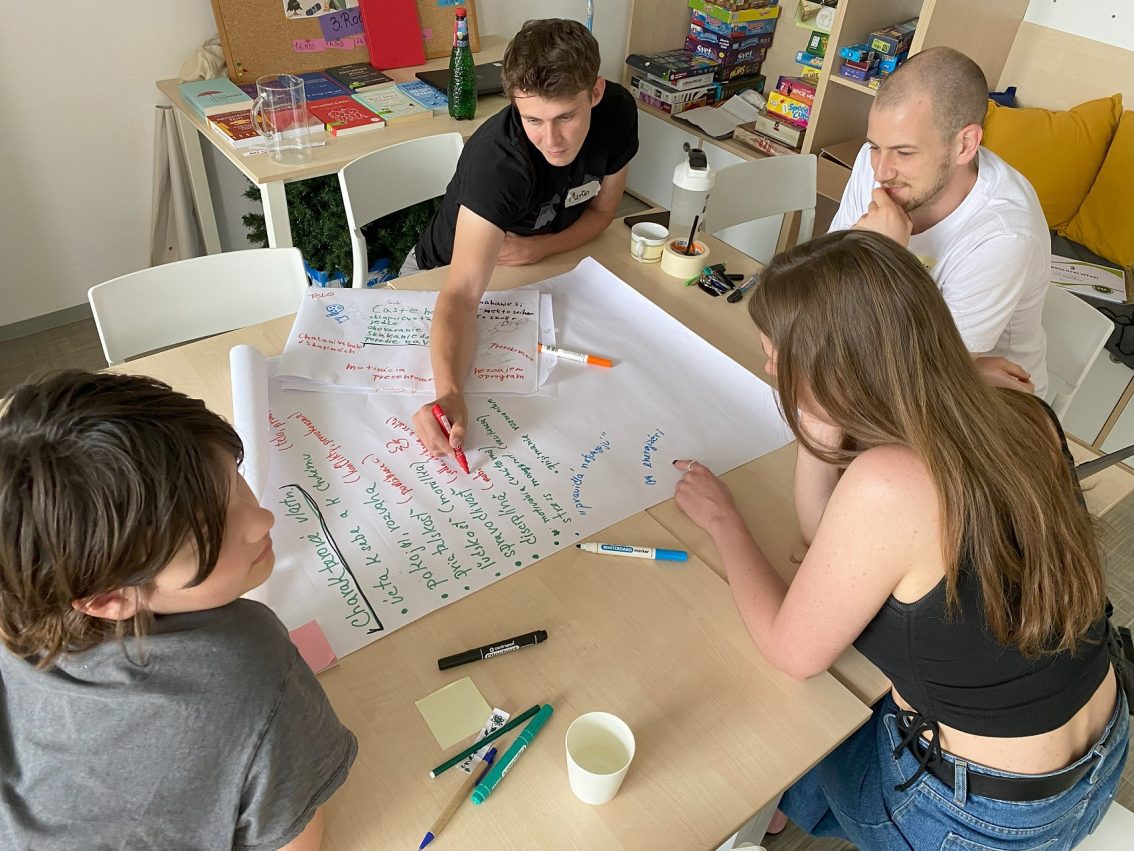Hackathon is not just for IT geeks. It also worked excellently for us in the Open Future programme
If you want to know what children find meaningful in learning, ask them. In the Open Future programme, we create educational content together with them in our centres, and we do it innovatively. When you combine education experts with the curiosity and needs of children, the ideas they come up with together are definitely worth it. That is why we organised a hackathon to create the educational content, the curriculum, in our centres.
Dictionaries define a hackathon as a gathering of people from various fields who are presented with different challenges. They must develop a solution within a certain time limit. Hackathons usually last for one day, 48 hours, or even a week. Ours was nine hours long.
For our hackathon, we invited people directly from the field (our coordinators), curriculum creators, external consultants, and children from the centres. After all, they are the ones who ultimately absorb what we want to convey. If we select one person from each group and pair them with two children from different grades of the Open Future, we create a truly diverse team capable of identifying opportunities where others might not see them, whether due to different knowledge or life experience.
Before the hackathon, we carefully prepared problem statements in three areas: entrepreneurship, soft skills, and digital competencies. Generally, we focused on the curriculum and its attractiveness to children. We emphasised the relevance of today’s societal issues, re-evaluating the project cycle that children go through in their second year, and we also wanted to decipher what truly resonates with students and where they see room for improvement. Our coordinators, who are in daily contact with reality and can specify the most common challenges faced, played a huge role in preparing for the hackathon.

Experts participated in the hackathon, with children providing support.
How we proceeded
All participants (except for the children, who only attended the morning part) dedicated nine hours to the hackathon. In the morning, already divided into groups of five, we worked on the so-called hacking phase. “Each team received a recommendation on how to proceed, but since there were two children present in each group, we all spontaneously and independently began to interview the children. This clarified what the defined challenges really meant for the children,” describes the programme team leader Miriam Šelepová.
This was followed by brainstorming, creative activities such as mind mapping, proposal of solutions, and preparation of presentations. After lunch, we focused on presenting and discussing the specific proposed solutions.

Participants of the autumn hackathon of the Open Future.
What we gained from hackathon
“It was clearly confirmed to us that students are capable of bringing solutions and are a full-fledged part of the working group. For example, children enjoy coding, but they need something that relates to their reality, something tangible. We also need to work on incorporating artificial intelligence and the creative work associated with it, such as creating graphics, comics, or various videos,” says the team leader.
When solving projects, it is important to ensure that children feel that the topic is related to them and touches their world and touches their world. We also realised that we need to do more field work with our participants to gather inspiration from the surroundings. We need to work on the topic of internet safety, especially in recognising conspiracies and hoaxes. But we also need to work on making worksheets more playful, especially for the youngest.
“The hackathon also showed us that we cannot lose contact with the environment in which children live. Sometimes they have nothing to grasp, lacking an overview of the opportunities their city offers. They also often choose a problem whose solution leads to an intangible result. If the theme and goal of their project are as specific as possible, we can avoid demotivation,” concludes Miriam Šelepová.
The hackathon has proven successful for the Open Future, and we will definitely organise it again. After all, that’s what our programme is about – entrepreneurship, creativity, challenges, and overcoming them. We have another school year ahead of us, which we want to fully experience in our centres, for the benefit of the children and their environment. With quality content of educational activities and the right setting of the form of the whole process, the result will be positive for all participants.


